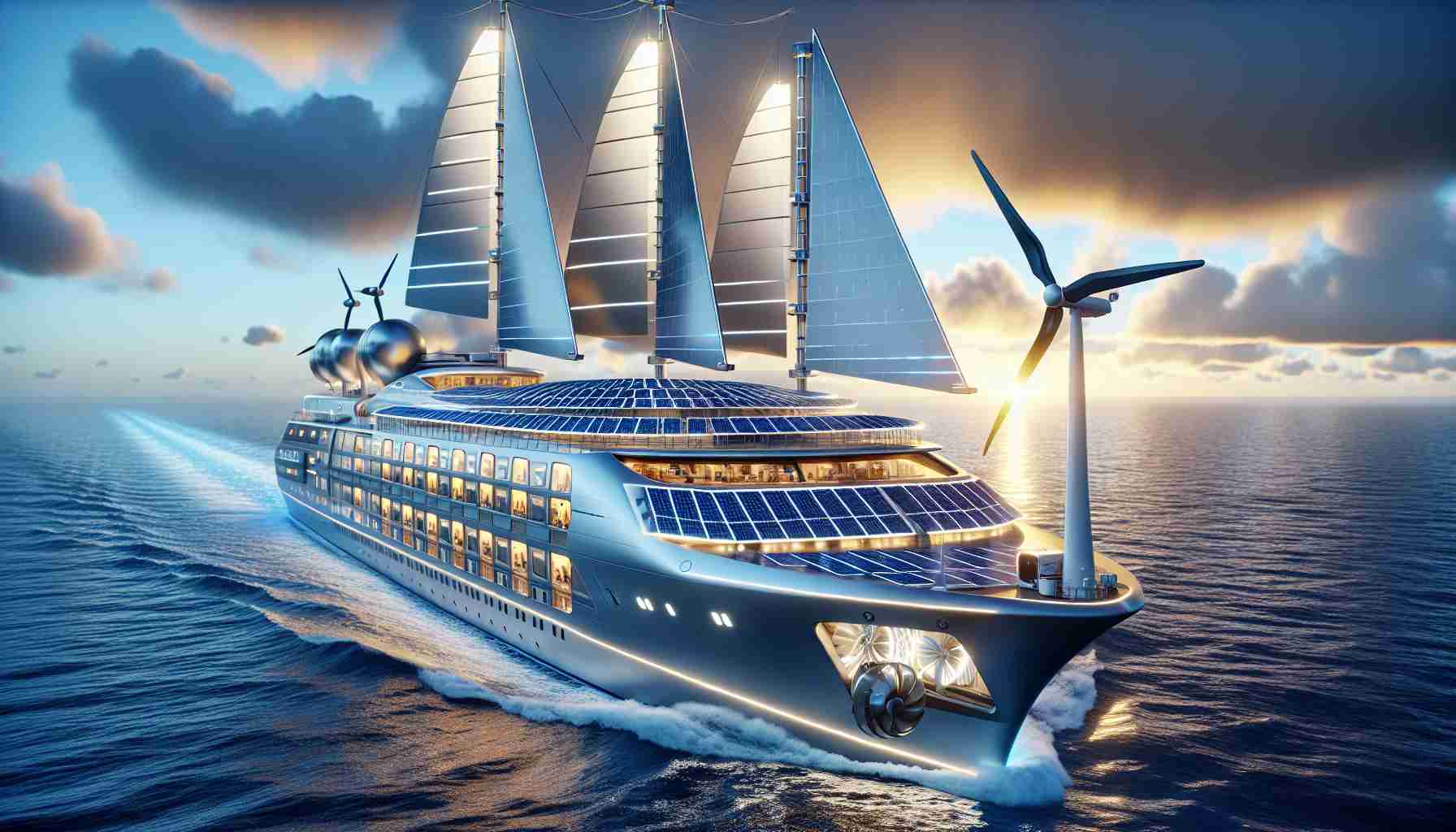As the cruise industry sails toward a greener horizon, a groundbreaking energy management system powered by artificial intelligence (AI) was recently unveiled. This innovative solution was introduced by Alfred Maritime, an emerging digital enterprise, at the renowned Seatrade Cruise Global event, signifying a major stride toward sustainable sea travel.
This AI platform is revolutionizing how ship managers and crews monitor and optimize a vessel’s performance at sea. It translates complex data into actionable insights, enabling the crew to enhance the ship’s energy efficiency. Ultimately, these advancements could lead to significant reductions in fuel consumption and carbon emissions, addressing environmental concerns head-on.
Founded in 2019 and part of the Meyer Group, Alfred Maritime of Germany has been spearheading the digital transformation of modern shipping. The company leverages the Internet of Things (IoT) and AI to not only digitize maritime operations but also advocate for next-generation eco-friendly vessels.
The seamless integration of real-time data and simulation models on a state-of-the-art IoT platform empowers swift decision-making by the crew, while ensuring transparency for operators. Featuring an intuitive dashboard, the system is designed for ease of use, necessitating minimal training for ship personnel.
This development arrives at a pivotal moment for the cruise industry, which is actively seeking sustainable practices. Flagship companies like MSC Cruises have boldly set goals for zero carbon emissions by 2050, and they are not alone in their quest for sustainability.
This push for cleaner cruising is underscored by a June 2023 study which highlighted the environmental impact of the industry, revealing a single corporation’s fleet emitted significantly more sulfur oxides than millions of European cars combined in the previous year. The dedicated efforts of Alfred Maritime and its contemporaries in the cruise sector are key to charting a course toward a more sustainable future on the high seas.
Current Market Trends in the Cruise Industry:
– There is a growing demand for eco-friendly technologies aboard cruise ships as the industry responds to environmental concerns. Cruise companies are investing in AI and IoT to optimize ship operations and reduce their carbon footprint.
– The adoption of alternative fuels such as LNG (liquefied natural gas), hybrid systems, and the exploration of alternative energy sources like solar and battery power is on the rise.
– The cruise industry is placing a greater emphasis on sustainability and eco-friendly practices, reflecting a broader trend in travel where consumers prefer environmentally responsible options.
– Another trend is regionalization, where cruises focus on local markets and shorter trips, responding to changes in travel behavior due to the COVID-19 pandemic.
Forecasts for AI-Powered Energy Management in Cruising:
– The global market for smart ship solutions, including AI-powered energy management systems, is expected to continue to grow. Market analysis forecasts compound annual growth rates of these technologies to significantly increase over the upcoming years.
– This trend is anticipated to be driven by regulations requiring lower emissions and the cruise industry’s commitment to sustainability targets, like the International Maritime Organization’s (IMO) goal of halving greenhouse gas emissions by 2050 compared to 2008 levels.
Key Challenges and Controversies:
– A key challenge in implementing these AI systems is the high initial cost and the need for significant investment in retrofitting existing ships or designing new ones.
– There is also a concern regarding cybersecurity. As ships become more connected and dependent on digital technology, they are potentially more vulnerable to cyber attacks.
– There could be resistance from within the industry due to the potential impact on jobs as automated systems could reduce the need for certain crew roles.
Advantages of AI-Powered Energy Management:
– Improved efficiency: Real-time data analysis can optimize fuel consumption and reduce costs.
– Environmental benefits: Lower emissions contribute to sustainability goals and reduce environmental impact.
– Enhanced safety: Predictive maintenance can prevent malfunctions and accidents.
Disadvantages of AI-Powered Energy Management:
– High cost: Implementation can be expensive, especially for smaller operators.
– Dependence on technology: Over-reliance on AI may reduce human expertise and decision-making at critical moments.
– Complex integration: Integrating new technology with existing systems aboard ships can be complex and challenging.
For more information on AI and its impact on different industries, you may visit sites like IBM which provide a wealth of information on technology, AI, and IoT. For insights into environmental sustainability and practices within the cruise industry, organizations like CleanTech Group offer valuable research and analysis. Please make sure to verify the URL before visiting these sites.
The source of the article is from the blog crasel.tk

